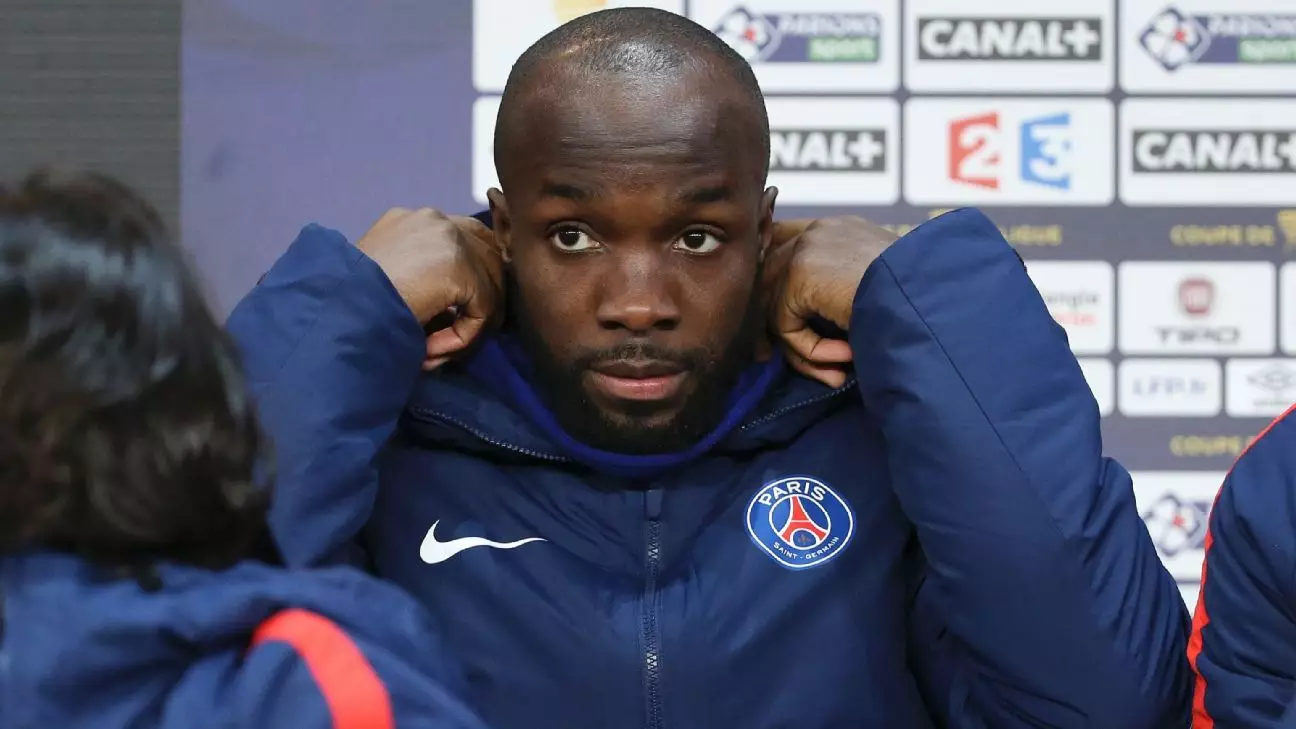Lassana Diarra’s recent legal victory is not just a personal milestone; it’s a bold indictment of the entrenched power structures within international football. The former professional’s decade-long legal battle against FIFA and the Belgian Football Federation underscores a deeper issue—one of systemic rigidity that often favors institutions over individual rights. By securing a groundbreaking ruling from the European Court of Justice, Diarra is exposing the flawed underpinnings of FIFA’s transfer regulations, which many perceive as an undemocratic stranglehold on a global sport that ought to reflect fairness and competitiveness.
This case spotlights the disparity between player autonomy and the bureaucratic machinery that governs their careers. Footballers, despite their popularity and influence, are often caught in a web of complex transfer rules designed more to protect clubs’ financial interests than to foster a free and equitable market. Diarra’s stand not only exemplifies a personal crusade for justice but also signals a wider awakening—one where players seek to challenge a paternalistic system that historically has sidelined their rights.
Legal Revelations That Could Redefine the Beautiful Game
The essence of Diarra’s legal argument hinges on the European Court of Justice’s recognition that certain FIFA transfer regulations conflict with EU laws related to labor and competition. This revelation is powerful because it questions the legitimacy of FIFA’s authority over player movement and compensation. For years, FIFA’s rules have effectively limited players’ freedom to transfer and negotiate contracts, often forcing players to accept unfavorable terms or face career-threatening bans.
The court’s decision lays the groundwork for a re-evaluation of football’s governance. By asserting that some of FIFA’s rules hinder free movement and competition, there is now a legal opening to overhaul this closed ecosystem. The implications extend far beyond Diarra himself; a positive outcome could embolden thousands of players, especially those on the margins, to stand up against unfair practices and demand more equitable treatment.
Diarra’s case, with backing from FIFPRO and its European division, also challenges the myth that players are powerless. His bold move reminds us that collective legal action can serve as a potent weapon against a monolithic governing body. It symbolizes hope that the sport’s future might be guided by fairness rather than bureaucracy.
The Broader Impact: Challenging Authority and Inspiring Change
The significance of Diarra’s battle extends to the very fabric of football governance. FIFA’s reluctance to comment publicly about ongoing legal proceedings underscores the organization’s defensiveness when faced with challenges to its authority. It suggests an awareness that the legal tide is shifting, with court rulings increasingly highlighting the discrepancies and injustices embedded in the status quo.
Diarra’s outspoken stance also acts as an inspiration for lesser-known players who lack the resources to legally fight for their rights. His statement emphasizes a desire to create a ripple effect—empowering a new generation to prioritize their dignity and rights over fear of institutional retaliation. His willingness to single-handedly push forward a case that could benefit tens of thousands signifies a shift towards player-centric reform, where individual rights are recognized as integral to the sport’s integrity.
Furthermore, the potential class-action lawsuit underscores an evolving landscape where systemic reform is no longer an impossible dream but a tangible possibility. This legal strategy threatens to erode the foundations of FIFA’s regulatory dominance, compelling the organization to reconsider its rules and reconcile with European legal standards. It might just be the catalyst needed to democratize football governance, making it more transparent, accountable, and fair for everyone involved.
A Catalyst for Change in a Stubborn Arena
Ultimately, Lassana Diarra’s courageous stand throws a spotlight on a fundamental truth: even in the realm of global sports, justice can prevail when determined individuals refuse to be silenced. His case is a testament to how legal avenues can serve as instruments of change—challenging monopolistic power and advocating for a more equitable sport.
This legal victory could mark a turning point, encouraging other players, leagues, and associations to question the legitimacy of established norms. It invites a broader conversation about fairness, competitiveness, and human rights within football. While FIFA continues to resist publicly acknowledging these challenges, behind the scenes, the momentum for reform is unmistakably growing.
Diarra’s fight is Bold and inspiring, a reminder that even institutions as powerful as FIFA are vulnerable when faced with determined resistance rooted in justice. The outcome of this case could reshape the sport’s governing principles—championing fairness, protecting player rights, and ultimately transforming football into a truly free and level playing field.


Leave a Reply